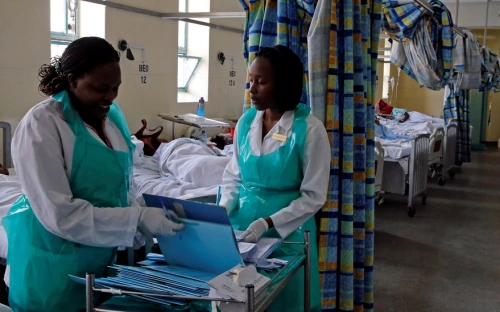Bridging the “Blank Spots” in Medical Waste Management at Small Hospitals and Township Clinics Across many developing regions, small hospitals and township health centers serve as the frontline of public healthcare. Yet these facilities often face a critical challenge―how to safely and efficiently dispose of medical waste. This “blank spot” in medical waste management not […]
Role of Medical Waste Incinerators in Modern Public Health Systems In modern healthcare, the safe disposal of infectious and biomedical waste is as vital as diagnosis and treatment. Hospitals, clinics, and laboratories generate large volumes of contaminated waste daily. Without controlled destruction, these materials pose serious risks to public health through secondary infections, environmental pollution, […]
Hidden Biological Risks in Medical Waste: Why Proper Incineration Matters More Than Ever Medical waste has always posed visible hazards―syringes, sharps, infectious dressings―but beneath the surface lies an invisible and far more complex threat: hidden biological risks. In an age of global mobility and post-pandemic sensitivity, the microbial and biochemical dangers inside untreated healthcare waste […]
The Post-Pandemic Surge in Medical Waste: Can Incineration Capacity Keep Up? A Growing Global Concern Since the COVID-19 pandemic, hospitals and clinics worldwide have faced an unprecedented rise in medical waste generation. Disposable masks, PPE, syringes, infusion bags, and contaminated plastics have overwhelmed traditional waste management systems. Countries that once relied on centralized treatment plants […]
Epidemic Intelligence and Medical Waste Incineration: Building a Safer Future Introduction Global health security depends on two parallel systems: epidemic intelligence platforms and medical waste treatment infrastructure. Companies like Metabiota and other epidemic-surveillance organizations provide data-driven insights into outbreaks, while incinerator manufacturers such as HICLOVER deliver practical solutions for hospital waste management. Together, these fields […]
Medical Waste Incineration in the Context of Pandemic Surveillance: Lessons from METABIOTA’s Field Introduction Pandemics and epidemics create challenges that extend beyond diagnostics and vaccines. Effective infectious-disease surveillance, as practiced by organizations such as Metabiota, must be paired with reliable medical waste treatment infrastructure. While Metabiota focuses on epidemic intelligence and data modeling, waste-management companies […]
Incineradores de Residuos Médicos para Proyectos de Educación Médica y Cooperación Hospitalaria en África Introducción: El crecimiento de la educación médica en África En países como Camerún, Senegal, Mali y Guinea Ecuatorial, la expansión de las universidades médicas y hospitales universitarios desempeña un papel crucial en la formación de nuevos profesionales de la salud. Estos […]
Incineradores de Residuos Médicos para Universidades y Hospitales en África: Soluciones Adaptadas a Malabo, Bata y Bamako Introducción: Educación médica en crecimiento en África La expansión de la educación médica en África es evidente en países como Guinea Ecuatorial y Mali, donde ciudades como Malabo, Bata y Bamako han visto un aumento en la construcción […]
Incinérateurs de Déchets Médicaux pour les Projets d’Éducation Médicale et de Coopération Hospitalière en Afrique Francophone Introduction : L’essor de l’éducation médicale en Afrique Dans des pays comme le Cameroun, le Sénégal, le Mali et le Togo, l’expansion des universités médicales et hôpitaux universitaires joue un rôle essentiel dans la formation de la nouvelle génération […]
High-Capacity Incinerators for Kenya’s Medical Universities and Teaching Hospitals Introduction: Training the Next Generation of Doctors Kenya is rapidly strengthening its medical education sector, with universities in Nairobi, Eldoret, and Kisumu expanding their teaching hospitals. These facilities not only provide clinical training for future doctors but also serve as high-volume referral hospitals handling thousands of […]









